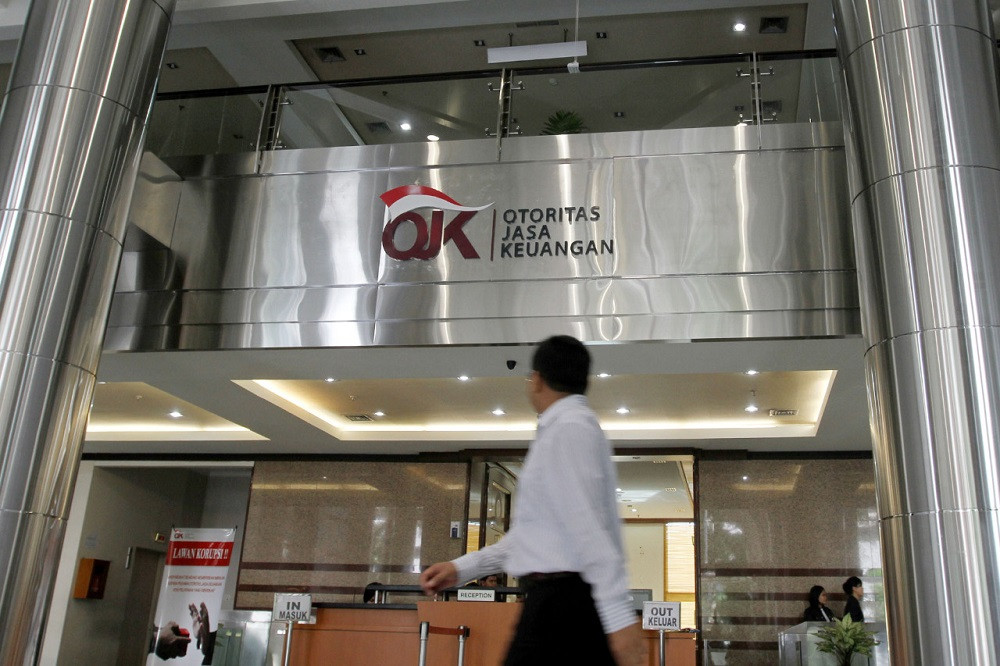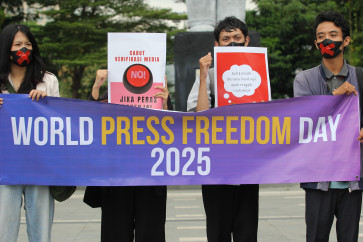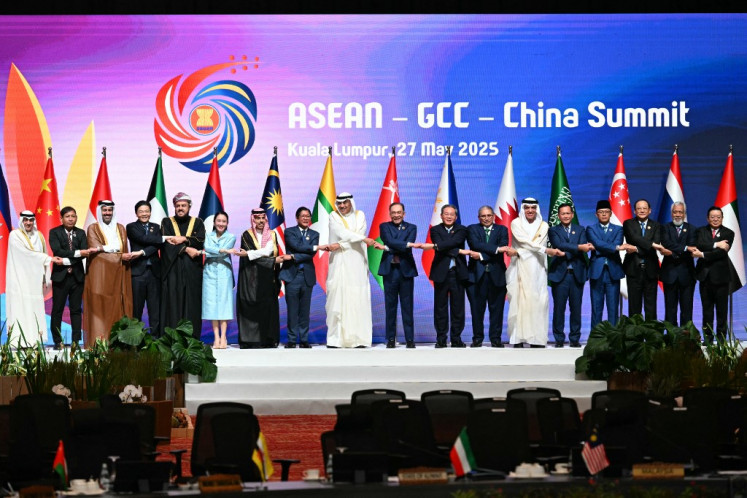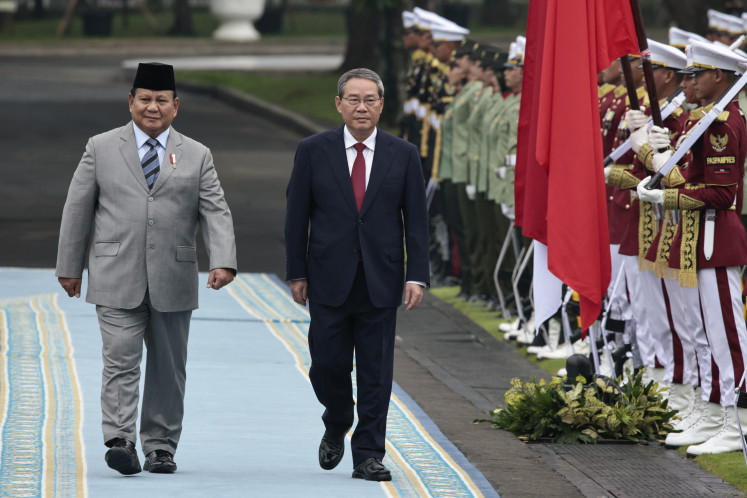OJK extends loan-restructuring phase for just three sectors
Textile and footwear manufacturers; hotels and restaurants; and businesses classed as micro, small and medium enterprises (MSMEs) will be able to avail themselves of the restructuring program for another year, or until March 2024.
Change text size
Gift Premium Articles
to Anyone

T
he Financial Services Authority (OJK) has extended the loan-restructuring program for certain businesses that it believes still require more time to recover from the COVID-19 pandemic and to withstand a global slowdown next year.
Textile and footwear manufacturers; hotels and restaurants; and businesses classed as micro, small and medium enterprises (MSMEs) will be able to avail themselves of the restructuring program for another year, or until March 2024.
Meanwhile, companies outside of those categories will only be able to take advantage of the program until March 2023.
“We have assessed restructured loans for the last two years. Some sectors have recovered, but there are some industries that still need more time,” OJK chairman Mahendra Siregar told reporters on Monday.
Read also: Big RI banks look to further growth despite global tempest
Mahendra added that the deteriorating global economy was a certainty next year, which would affect some industries in the country, particularly those with a heavy reliance on exports.
He said the OJK would closely monitor these risks and their possible effect on the country’s financial sector.
The OJK’s decision marks the third extension -- albeit just for the aforementioned sectors -- since the loan-restructuring program was introduced in 2020, during the early months of the COVID-19 pandemic.
The program allows banks to reclassify loans that have deteriorated as a result of the economic crisis caused by the pandemic: Loans that would normally be considered “nonperforming” can instead be registered as “loans at risk” (LaR), which helps banks keep their nonperforming loan (NPL) ratios artificially low.
Major Indonesian banks have announced that they are prepared for the OJK ending the policy, with many having upped their provisioning over the past two years in anticipation of an increase in nonperforming loans should the restructuring program end.
Read also: Loan restructuring period may need extending: Experts
State-owned Bank Rakyat Indonesia (BRI) CEO Sunarso told reporters on Nov. 16 that the lender was well prepared and assured the public that its provisions were enough to cover all possible nonperforming loans.
Sunarso added that the amount of restructured loans in the bank’s balance sheet had fallen to just Rp 116 trillion (US$7.38 billion) from around Rp 256 trillion at the height of the pandemic, as more borrowers were better off now and able to pay off their loans.
“Should there be any borrowers we can no longer save, it will be no more than 10 percent. Compared to our provisioning at 25.7 percent of outstanding restructured loans, it is actually more than safe,” Sunarso said.
However, Aviliani, who heads the development and assessment division at the Federation of Private Domestic Banks (Perbanas), said on Nov. 7 that the OJK may want to consider extending the restructuring program not just for selected sectors, arguing that, given the heightened risk and uncertainty next year, all industries would be affected.
“So, it does not need to be by sector or by region, because we are facing similar problems. Let banks themselves decide whether they want to give it to certain firms or not,” Aviliani told The Jakarta Post.
M. Faisal, executive director of the Center of Reform on Economics (CORE), said a survey conducted by the think tank showed that the number of companies reporting a decrease in sales had come down this year but remained higher than those reporting an increase in sales.
He said this showed that not all firms had fully recovered from the pandemic, and they may suffer from risks next year, such as a rise in input prices and higher interest rates.
For now, the most-apparent sector in trouble may be textiles and footwear, but he said he feared trouble could expand to other industries as well.
“We have found that there are still many industries that may not be ready to exit from the loan-restructuring program. Many could still see their performance go down next year,” Faisal told the Post.
M. Doddy Ariefianto, head of the finance program at Binus University, said on Oct. 27 that the loan-restructuring program was actually not a prudent move for the banking sector, and ending it after three years may be a necessary move to avoid moral hazard.
“It’s true that we can’t just abandon it or cut the policy off right away, but we still need to phase it out, taper it,” Doddy said.









